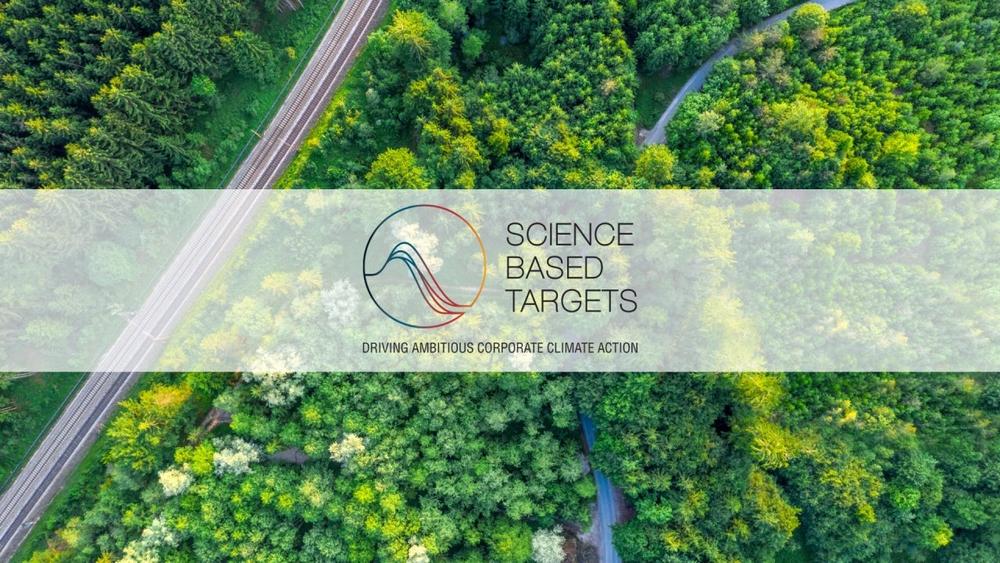• Knorr-Bremse’s ambitious climate targets validated by the Science Based Targets initiative (SBTi)
• Production-related carbon emissions (Scopes 1 and 2) are planned to be reduced by 75 percent by 2030
• An emission reduction target of 25 percent has been set for most relevant categories in the upstream and downstream value chain (Scope 3)
• SBTi validation confirms compatibility of the communicated reduction pathway with the Paris Agreement 1.5 degree target
Knorr-Bremse’s ambitious climate targets [1] for reducing emissions across the value chain have been validated by the internationally recognized Science Based Targets initiative (SBTi). The global market leader for braking systems and leading provider of other rail and commercial vehicle systems is thus determinedly pushing ahead with its climate strategy.
Frank Markus Weber, Chief Financial Officer at Knorr-Bremse AG: “We are delighted to receive the SBTi’s independent confirmation of our ambitious emission reduction targets. We have thus fulfilled our commitment and are once again demonstrating that we are serious about our sustainability management. We are a successful global player in the transportation industry, so we see ourselves as having a special responsibility to contribute to the achievement of the Paris Agreement targets.”
Specifically, Knorr-Bremse has set targets of reducing its global production-related carbon emissions (Scopes 1 and 2) by 75 percent from its 2018 baseline by 2030. This means that Knorr-Bremse has once again significantly increased the 50 percent reduction target for Scope 1 and 2 emissions that was published already in 2019.
Furthermore, the absolute Scope 3 emissions from purchased goods and services, upstream transport and distribution, and the use of sold products are planned to be reduced by 25 percent from the 2021 baseline level by 2030.
The SBTi is a partnership between CDP, the United Nations Global Compact, World Resources Institute (WRI) and the World Wide Fund for Nature (WWF). It evaluates and validates the emission reduction targets that companies set based on the latest climate science.
[1] Official target wording: Knorr-Bremse AG commits to reduce absolute scope 1 and 2 GHG emissions 75% by 2030 from a 2018 base year. Knorr-Bremse AG also commits to reduce absolute scope 3 GHG emissions from purchased goods and services, upstream transport and distribution and use of sold products 25% by 2030 from a 2021 base year.
Knorr-Bremse (ISIN: DE000KBX1006, ticker symbol: KBX) is the global market leader for braking systems and a leading supplier of other rail and commercial vehicle systems. Knorr-Bremse’s products make a decisive contribution to greater safety and energy efficiency on rail tracks and roads around the world. About 32,600 employees at over 100 sites in more than 30 countries use their competence and motivation to satisfy customers worldwide with products and services. In 2022, Knorr-Bremse’s two divisions together generated revenues of € 7.1 billion. For more than 115 years the company has been the industry innovator, driving innovation in mobility and transportation technologies with an edge in connected system solutions. One of Germany’s most successful industrial companies, Knorr-Bremse profits from the key global megatrends of urbanization, sustainability, digitalization, and mobility.
Knorr-Bremse AG
Moosacher Straße 80
80809 München
Telefon: +49 (89) 3547-0
Telefax: +49 (89) 3547-2767
http://www.knorr-bremse.de
Head of Investor Relations
Telefon: +49 (89) 3547-182310
E-Mail: andreas.spitzauer@knorr-bremse.com
Corporate Communications
Telefon: +49 (89) 3547-2582
E-Mail: claudia.zuechner@knorr-bremse.com
![]()

